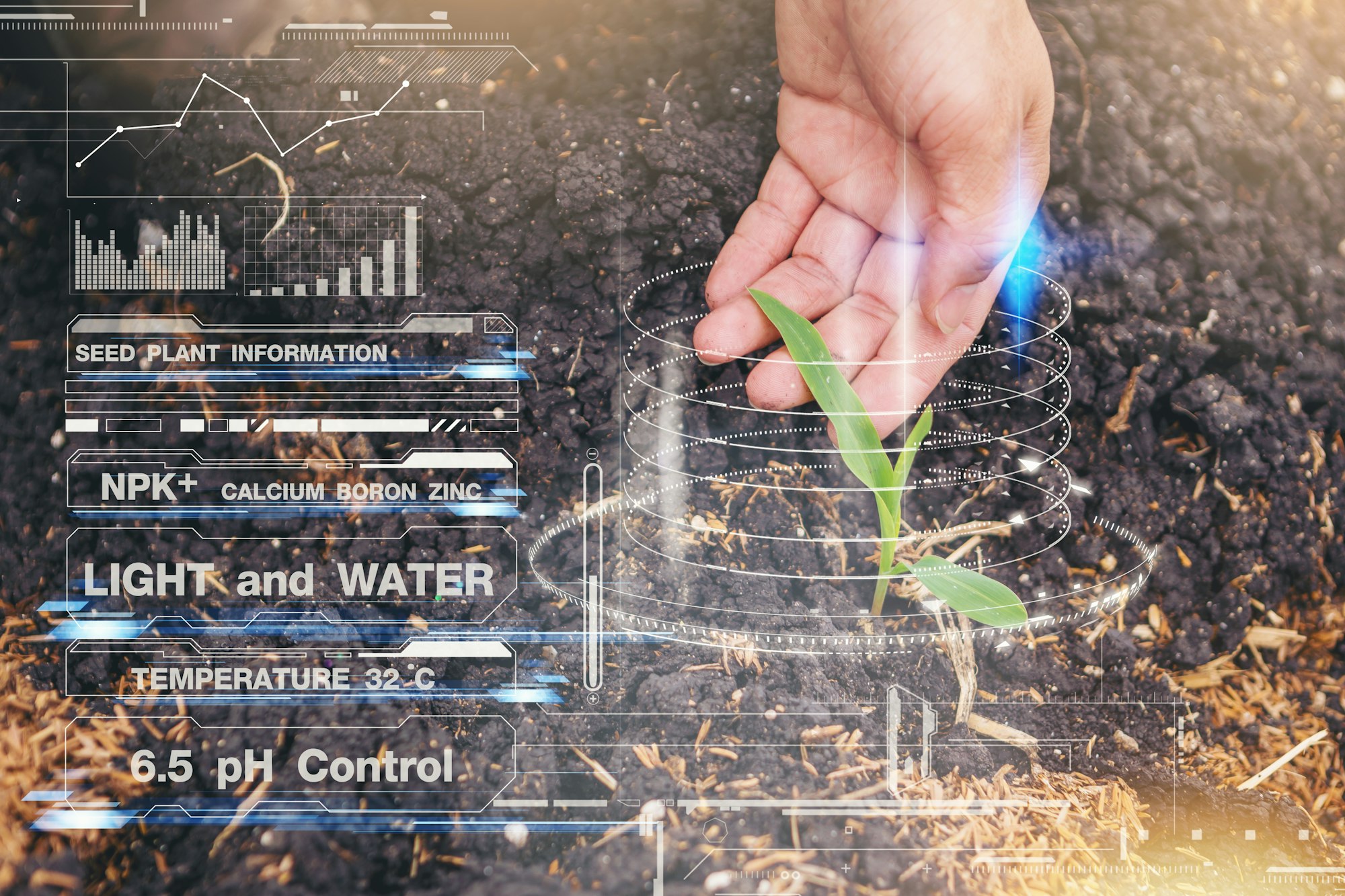Smart Farms & Smart Farming Technologies

Maybe you've heard the theory of how the wheel is the most important advancement of all time? Well, in the farming world, it was undoubtedly one of the best. Then came "nitrogen-fixation." It created a new class of fertilizers, and for Fritz Haber, it won him a Nobel Prize. We might be on the brink of the next most significant advancement in farming (some even call it the fourth revolution) - Smart Farming.
What is smart farming? Farmers use technology to increase the quality and quantity of their crops and livestock. It could be just the thing for farmers worried about drought, pests, and labor shortages.
The technology includes drones, robots, artificial intelligence, and, maybe easiest of all, your smartphone.
How to Use Smart Farming
According to Smarter Technologies, global farming production is expected to increase by 69 percent between 2010 and 2050. That's huge. It also gives farmers the potential to grow their farms and make more money. So how can you use smart farming to prepare for such a big increase in demand?
One example of how smart farming can help you grow your farm is probably in your hand now: your phone. Smartphones can access real-time data to help you make the best decisions at the moment and plan for the future. You can use it to learn about the condition of your soil, crops, the weather, and other resources you are utilizing. Smartphone technology allows you to make decisions to improve productivity and profits.
To get the most out of smart farming, you'll need sensors that will measure physical conditions in your environment. As we experience drought conditions here in California, you're likely to find smart farming to be a vital tool in the efficiency of how you run your farm.
Smarter Technologies says you can use smart farming for:
- Automatic irrigation
- Soil health monitoring
- Weed control
- Improvement of the quality of your produce and more
Three Smart Farming Technologies to Consider
There are a lot of options out there for technology to help you on your farm. Here are just a few options to consider:
- Soracom - This technology is for cattle farmers. It can help detect illness in your cattle and mating conditions. It works by attaching a sensor to the cattle and collecting data on their activity. You can then access the information collected from your smartphone or computer.
- Smart Farm Sensing - They use sensor data, remote sensing, and geospatial data to help farmers make better decisions. Their goal is to help their agriculture clients increase productivity, reduce loss due to pests, and optimize water use efficiency.
- Libelium - Their technology aims to help farmers increase crop yield and productivity and "reduce consumption of agricultural inputs."
Use Smart Farming to Solve Drought Issues
Smart farming is about helping your crops and livestock not only survive but helping the world tackle food scarcity as a result of climate change.
Drought is Your Biggest Risk to Production
Here in California, it's no surprise to know that the most significant risk to your farm is a drought. And we are almost always in a drought. According to the USDA, relying on surface water for irrigation is vulnerable. The longer the drought, the more reductions in the amount of surface water delivered. So, utilizing innovative irrigation measures alone is not enough to save your farm.
How Smart Farming Can Help With Drought Issues
Smart farming can help you determine exactly how much water your crops need. As you know, they don't all need the same amount of water. You can use this technology to control which plants get how much water. It helps you to be more efficient with your water usage.
Plan for Water
Right now, you might be looking at your water usage daily or week to week. But, here at the Nevada Irrigation District, we're looking and planning for the next 50 years. It is so important that as we look ahead. Water conservation in agriculture is one of the necessary steps to secure the future of the district's water supply.
